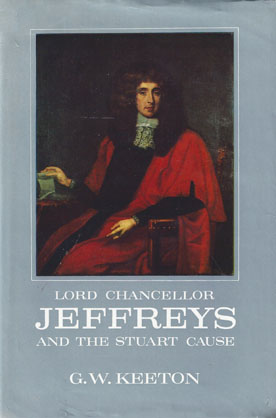
Out of Print
Jeffreys died a prisoner in the Tower shortly after the Revolution of 1688. Since that time his character and abilities have been denigrated by successive generations of historians. His unpopularity is conventionally supposed to have been one of the principal reasons for James II' s downfall. He is remembered as the worst judge in English legal history.
G. W. Keeton has reassessed the evidence for this parti pris. He has analysed the material relating to the controversial State trials on which Jeffreys' unsavoury reputation is primarily based; he has investigated the record of the civil trials in which Jeffreys took part; and he has presented fresh evidence about Jeffreys' family background and intimate associates.
There emerges a portrait of a striking personality whose popularity and influence at the end of Charles's reign only fell short of the King's. After James's accession, Jeffreys steadfastly resisted all inducements to embrace Roman Catholicism, consistently acting, on the contrary, in defence of the Anglican establishment; but his convenient death permitted those who had betrayed James and brought in William, to make Jeffreys a scapegoat for the fallen regime.
Documents were suppressed and records falsified in order that anything which showed him in a favourable light or indicated a connection with those involved in the Revolution should not be known.